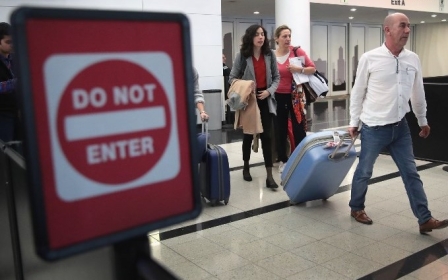Israel to ease transit rules for Palestinian Americans as part of US visa waiver deal

Israel is prepared to permit Palestinian-American dual nationals to transit its territory as part of an emerging US visa waiver deal for its citizens, a senior Israeli official said on Tuesday.
Israel strictly limits access by Palestinians - including to the Tel Aviv and Eilat airports. Palestinians coming in from abroad generally make more onerous trips through Jordan and the Israeli-run West Bank boundary, or through Egypt's Sinai desert, which borders Gaza.
Speaking to reporters, Israeli Interior Minister Ayelet Shaked said that giving Palestinian Americans domiciled in the territories an Israel-transit option "is a demand by the Americans going back many years".
"The Shin Bet [Israeli security service] can handle it, and in the context of the visa waivers - if that process does indeed happen - an American who also has Palestinian citizenship will be able to enter Israel like any American," she said, according to the Reuters news agency.
The deal could be concluded in February 2023, she added.
US State Department spokesman Ned Price, discussing the visa waiver talks last month, said Washington would "continue to work with Israel toward fulfilling the equal treatment of all Americans... seeking to enter or transit through Israel".
Shaked said her staff was also addressing US complaints that Arab Americans are subject to unusually intrusive questioning by Israeli airport security.
Among proposals, she said, was for security agents to receive airline passenger lists 12 hours in advance, to enable more selective screening.
Another condition for the US visa waiver is reducing the current Israeli applicant refusal rate to three percent. According to Haaretz, the rejection rate for 2020 was 6.7 percent.
Shaked said 40 percent of those rejected filled in application forms incorrectly, and that her ministry was considering offering instructional materials to rectify this.
Middle East Eye delivers independent and unrivalled coverage and analysis of the Middle East, North Africa and beyond. To learn more about republishing this content and the associated fees, please fill out this form. More about MEE can be found here.





